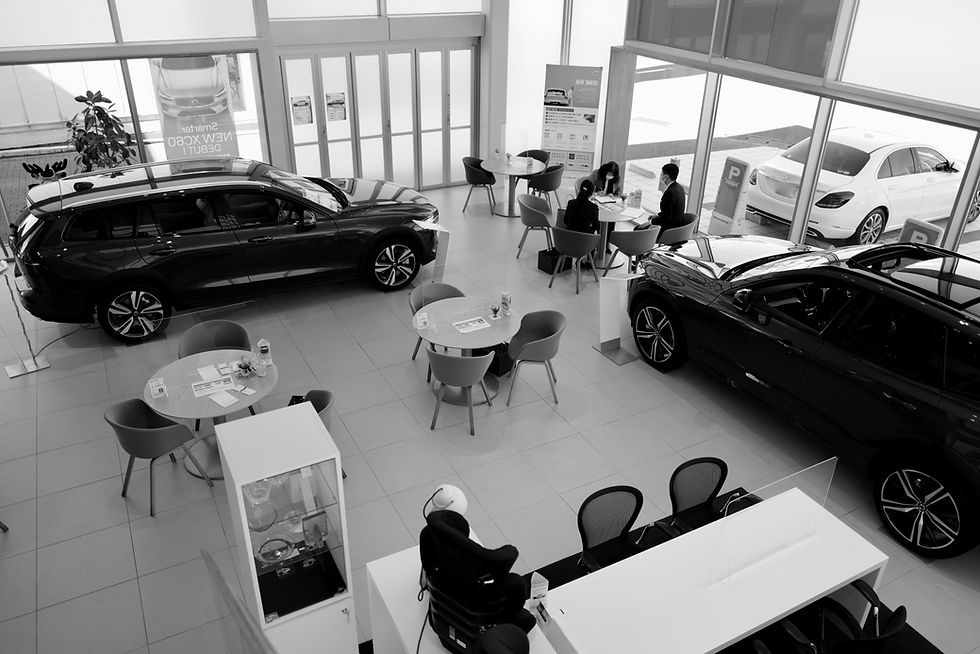Lease or Buy: Decide How You’ll Make Payments On Your Next Vehicle
- Carolyn Stanton
- Jul 30
- 2 min read
Deciding whether to lease or finance a vehicle depends on your financial situation, driving habits, and long-term goals. The majority of new car buyers 75%-80% through recent years have opted to purchase their vehicles. This preference for buying over leasing has been consistent with a slight dip around 2022 likely due to high interest rates.

Often, when you’re buying a car for the first time, your focus naturally centers on the total cost—how much you’ll be paying upfront and over time. You might be comparing loan rates, evaluating what you can afford monthly versus what makes sense long-term.
Mileage becomes a major factor too, especially when weighing the pros and cons of a brand-new vehicle versus a pre-owned one. New cars offer the latest features, better fuel efficiency, and come with warranties, but they also depreciate quickly.
On the other hand, used cars can offer better value upfront, though they may come with higher maintenance needs and fewer buyer protections. It’s a balancing act between budget, reliability, and long-term financial impact—and the decision often comes down to what best aligns with your lifestyle, priorities, and how much risk you’re willing to take on.
If you’re debating whether to lease or buy our breakdown will help you decide.

Choose Leasing If You Value:
Lower Monthly Payments: Lease payments are usually lower than loan payments because you're only paying for the car's depreciation during the lease term.
Driving New Cars: Leasing lets you get a new car every few years without the hassle of selling or trading in.
Low Mileage Use: If you drive less than 12,000–15,000 miles/year, leasing can be a good option. Going over mileage limits can incur fees and negate the original ROI.
Warranty Coverage: Most lease terms are within the warranty period, meaning lower maintenance costs which can get up there.
Business Use: Lease payments may be tax-deductible if the vehicle is used for business

Choose Financing If:
You Want to Own the Vehicle: Once you finish payments, you own the car and can keep it as long as you want.
Higher Mileage Needs: No mileage restrictions means you can drive as much as you want with no penalty.
Customization: You can modify or customize the car however you like from tints and rims to custom paint jobs.

Long-Term Cost Efficiency: Financing may cost more monthly, but once paid off, you have an asset (albeit depreciating) with no further payments.
Equity Buildup: Over time, you build equity in a financed car, which can be used towards a future purchase or sale.
Have you decided between leasing and financing? Is your dream car in your front view? Let’s hit the road!






Comments